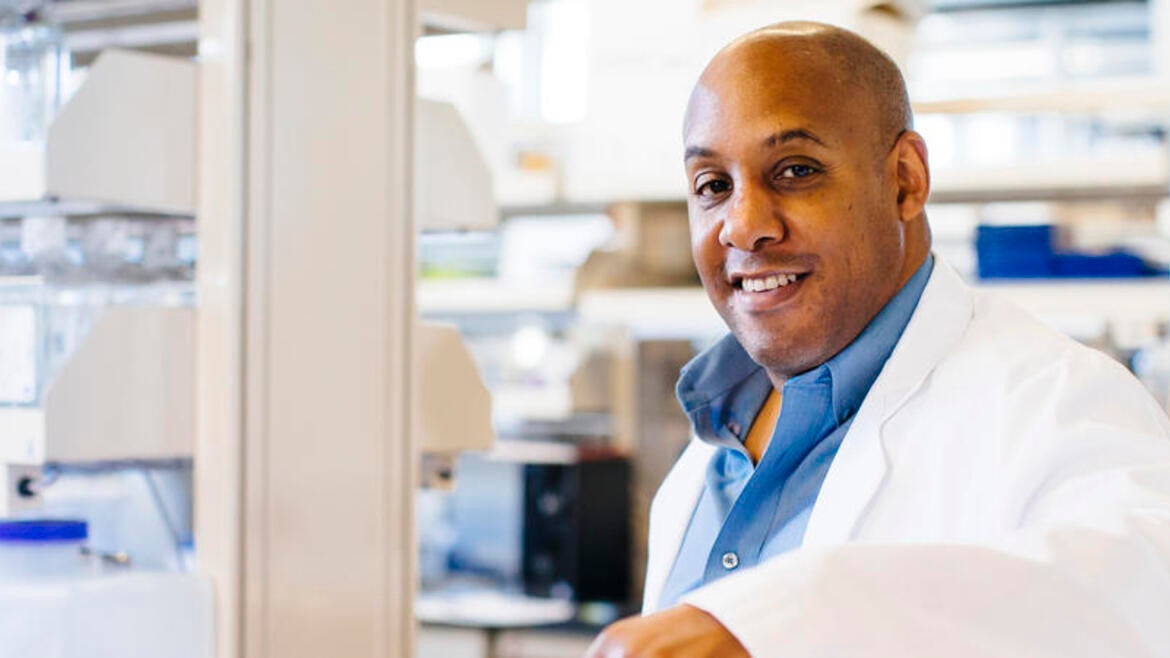Colloquium Speaker: Byron Ford; Professor, Biomedical Sciences Division, School of Medicine, University of California, Riverside, CA

Neuregulin-1 for Stroke Treatment: A Journey From the Bench to Clinical Translation
Abstract: Ischemic stroke is the leading cause of serious long-term disability and the 5th leading cause of death in the United States. Revascularization of the occluded cerebral artery, either by thrombolysis or thrombectomy, is the only effective therapy. However, only about 5-7% of acute stroke patients in the United States receive revascularization, so there is a significant need to develop new therapeutic strategies for stroke. We demonstrated that neuregulin-1 (NRG-1) reduced ischemia-induced neuronal death and neuroinflammation in rodent stroke models with a therapeutic window of >13 hours. NRG-1 administration also resulted in a significant improvement of neurological function when administered 3 days following ischemia, suggesting a role in neuronal repair. In addition, NRG-1 prevented neuronal injury and improved blood brain barrier integrity in animal models of brain hemorrhage. NRG1 is currently in a phase III human clinical trial for heart failure and showed significant efficacy for improving cardiac function human patients. These findings could support the development of clinical studies using NRG-1 alone or in conjunction with other therapies, such as thrombolysis and thrombectomy, for the treatment of patients with acute stroke. If successful, this study could aid in the progression of NRG-1 towards clinical trial, FDA approval and development of a new treatment for ischemic stroke.
Biography: Dr. Byron Ford is a Professor and Director of the Graduate Program in the Division of Biomedical Sciences at the UCR SOM. Prior to joining UCR in 2015, he was Professor and Vice Chairman in the Department of Neurobiology at the Morehouse School of Medicine (MSM). Dr. Ford received his B.S. degree from Grambling State University, Ph.D. degree from Meharry Medical College and completed a postdoctoral fellowship in the Department of Neurobiology at Harvard Medical School. Dr. Ford served as a Senior Staff Scientist at NIH before joining the faculty at MSM. Dr. Ford’s laboratory has studied mechanisms of neuroprotection and inflammatory mediators in ischemic stroke for over 20 years. He has been the recipient of NIH and DoD grants to investigate the neuroprotective roles of neuregulin-1 (NRG-1) in stroke, traumatic brain injury (TBI), cerebral malaria and as a countermeasure for nerve agent exposure. His work has yielded nine full U.S. patents and several additional patent applications. Dr. Ford was a member of the National Institute for Neurological Disorders and Stroke (NINDS) Advisory Council at NIH from 2012-2016.
Dr. Ford has been involved with professional undergraduate, graduate, and postdoctoral student training for over twenty years and has been directly involved in the training of 10 postdoctoral fellows, 23 graduate/medical students and over 100 undergraduate students. In 2017, Dr. Ford received a grant from the NIH Bridges to the Baccalaureate (B2B) Program, which was established between UCR and Riverside City College (RCC) to create a research education program to facilitate transfer of diverse RCC students into STEM majors.